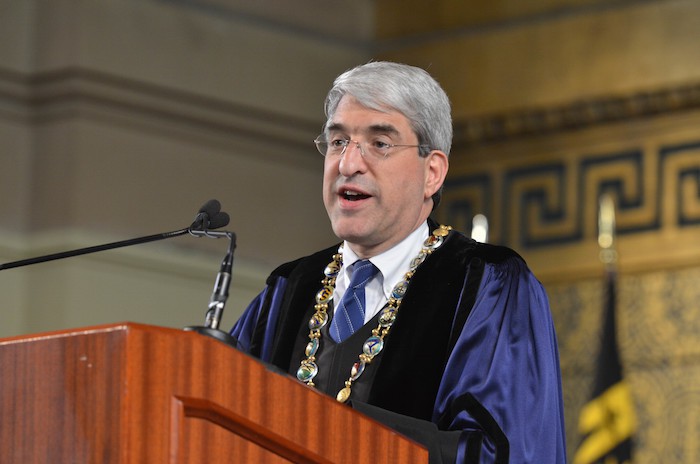
After its publication on May 19, Tablet writer Yair Rosenberg’s story on the Jewish themes in Yale president Peter Salovey’s address to graduating undergrads sat on Tablet’s most popular list for nearly a week.
The post has been tweeted almost 200 times, but it’s really been a hit on Facebook where the original post has received more than 3,100 likes and the story has been shared more than 13,500 times. The Facebook post has also attracted dozens of comments as people shared their reactions to Salovey’s speech.
Seemingly the only place where there hasn’t been any discussion on the post is Tablet’s own website, where the story has received…zero comments.
Which is exactly what the magazine wants.
In February, as part of an effort to improve the dialogue around its stories, Tablet began charging readers to access the comments on the site. The decision — and the price tag — attracted a lot of attention at the time, but Tablet editor Alana Newhouse told me the move has had its desired affect: The quality of comments has increased while Tablet’s traffic hasn’t taken a hit.“A few people have rightly pointed out that they like the imprimatur of Tablet on the landscape that they commented on and they miss it,” Newhouse said. “But most people, especially most of our active readers, they tell me they don’t really see much of a difference in their lives.”
Before the change, Tablet was using Facebook’s comment platform. And since making the switch, most of the commenting has simply migrated to Tablet’s Facebook page, Newhouse said — noting that Facebook and other social platforms were already hosting much of the conversation around Tablet’s stories.
Users can purchase the right to comment on Tablet stories for 24 hours for $2. A monthly pass goes for $18 and it’s $180 to comment for the full year. About 100 people have paid to comment, Newhouse told me, though she said she couldn’t provide a breakdown of how many people had signed up for each tier. And in a followup email, she said she “never expected even this many sign-ups!”
Since the beginning, Newhouse has repeatedly insisted that the move wasn’t an effort to generate revenue. “It was a messaging effort,” she said. “The effort was to say to readers that we’re in this together. We’re going to provide free content to you, and what we require back is that you engage with it with the same posture of civility and commitment to dialogue that we bring to the table.”
Still, Newhouse said she couldn’t say with “scientific certainty” whether the tenor of the comments has improved on the site or on Facebook, she said she hasn’t noticed “a whole lot of flaming awfulness.” That’s not to say it doesn’t exist — a section of the comments on the story about Salovey’s speech, for example, devolved into name calling over the Israeli-Palestinian conflict. The difference now, though, is they don’t exist on Tablet’s site.
“In fact, the very point was to get them, and these comments, off my pages,” she said via email.
Newhouse said the site’s writers have been the biggest supporters of the change. She said the previous environment was sometimes “demoralizing” for the site’s staff.
“The funny part was that the people who wrote emails to me in the couple weeks following it, and they would write emails that were hilarious because they would say things like: ‘How’s your new commenting system working, moron?’ And you were like, ‘Since it limits my interaction with people like you, it’s going really well.’ It’s astonishing to me that people didn’t understand that they were the problem. The absence of self-awareness on the part of some commenters is astonishing.”